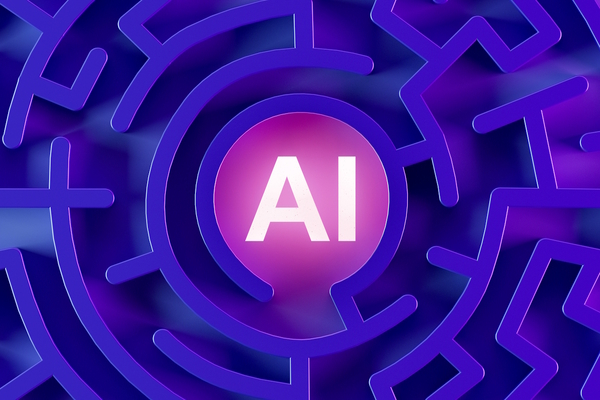Businesses are wasting time and money – here’s what you can do to fix that
Disorganised work is impacting our efficiency, but AI offers a promising solution, bringing greater order and organisation to the workplace.

It’s a challenge that we’re all beginning to recognise: the cost of disorganised work and information. For companies of all sizes, the inefficient management of business information across documents and apps can lead to thousands of wasted hours and missed opportunities every year. In fact, according to a McKinsey report, we spend an average of 1.8 hours a day – nearly 20 per cent of our workweek – searching for and gathering information.
That’s time that could be better spent on high-impact tasks, such as strategic planning and creative thinking. For every five employees that a company hires, one role is almost entirely absorbed by inefficiencies. Essentially, businesses are paying for five people, but only four are truly adding value.
It’s clear that disorganised work can have a devastating impact on efficiency and a company’s bottom line. But what can we do to reclaim these lost resources?
AI solutions offer a promising way forward. By bringing greater order and organisation to the workplace, AI-powered platforms can help businesses operate more effectively by enabling their employees to focus on the work that really matters.
The problem with scattered information
Today’s workplaces are increasingly digital, with over 75 per cent of UK businesses offering some form of flexible working. But this shift presents unique challenges. As we increasingly rely on screens and technology, data is often dispersed across multiple platforms – from cloud storage and email to messaging apps and project management tools. As a result, this “content chaos” forces us to waste valuable time, switching between applications and searching through disorganised files.
Inefficient and ineffective forms of content management don’t just impact time, they also drain financial resources. Organisations could lose an average of $12.9 million due to poor data quality, silos and inadequate data capture. And as flexible work increases these inefficiencies worsen, as employees struggle to access up-to-date information, spread across various systems and applications – each with their own different file types, access controls and notifications.
The promise of AI: streamlining information management
What if AI could streamline how we find and manage information, freeing us from the distractions of busy, low-impact tasks? By automating routine processes and intelligently organising data, AI has the potential to simplify workflows, enabling employees to focus on higher-value work.
Research from Economist Impact, commissioned by Dropbox, shows that knowledge workers using automation tools – including AI – are already experiencing significant improvements in their performance. In fact, 79 per cent report being more productive and almost 70 per cent of those surveyed feel more organised.
Security concerns: how AI can help safeguard information
As teams work across more locations, managing access to sensitive information is complex. Tracking who has access to what is challenging, and if information falls into the wrong hands, the consequences can be severe. In fact, recent research from Cisco found that 94 per cent of organisations believe customers would not buy from them if they failed to protect data properly – demonstrating the need for robust security practices, especially as remote work continues to reshape how we manage access and control over information.
This is where AI-powered tools can play a key role in helping businesses to protect their data, by automating access controls and security protocols. For example, the Protect and Control features within Dash enable businesses to easily view and filter access permissions across multiple cloud applications in one central location. This ensures that critical information is only accessible to authorised users, while enabling businesses to quickly take action to prevent unauthorised content sharing.
In doing so, AI tools can help companies protect their most sensitive data, while still enabling the sharing of information across the business. And, by striking this balance, businesses can foster collaboration and increased efficiency without compromising security.
Turning wasted time into productivity gains
Today’s AI solutions offer a transformative way to reclaim lost resources. By streamlining information management and automating routine tasks, AI is enabling people to focus on high-impact work that drives growth and innovation – and this shift from “content chaos” to “content clarity” not only enhances collaboration but also improves the safeguarding of data.
The potential for cost savings and increased efficiency is substantial, with reports suggesting that AI could unlock up to $14 trillion in value over the next decade. Importantly, AI also doesn’t have to require a complete overhaul of existing systems. Many tools integrate seamlessly with existing platforms, and even small adjustments, such as improving document searches, can significantly boost performance.
As we continue to navigate the complexities of modern work, embracing AI is essential – and by prioritising intelligent information management and investing in AI technology, businesses can turn wasted time into efficiency and position themselves for long-term success.
Dash for Business is available in the US in English on web and desktop, with availability in additional markets in early 2025. To find out more, click here.

Business Reporter Team
Most Viewed
Winston House, 3rd Floor, Units 306-309, 2-4 Dollis Park, London, N3 1HF
23-29 Hendon Lane, London, N3 1RT
020 8349 4363
© 2025, Lyonsdown Limited. Business Reporter® is a registered trademark of Lyonsdown Ltd. VAT registration number: 830519543





